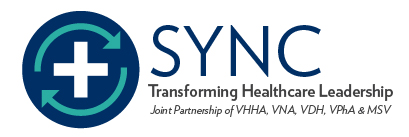There are a number of recent studies around medication reconciliation, particularly in the hospital setting, and whether interventions may effect readmissions as well as patient experience. We highlight three studies below which may provide insights and best practices for organizations considering a medication reconciliation program at their organization. All three studies demonstrated improved/enhanced patient experience. Two of the three studies demonstrated reductions in readmissions.
Cleveland Clinic Ask 3, Teach 3 Program
Abstract/Summary: At Cleveland Clinic Health System, several unit-based teams were already working to improve performance on the medication HCAHPS questions, but attempts were isolated and not coordinated well enough to share best practices throughout the organization. A multidisciplinary improvement team of nursing, pharmacy, operations and patient experience was formed in January 2011 to solve this issue. The team completed surveys of physicians and nurses and assessed current practice around how we communicate to patients about medications. Based on the review, the team believed there was a solution that could be designed that improved caregiver performance and leveraged the role patients could play. They believed patients could be made better partners in the communication process by engaging them in the conversation. By scripting the interaction and incorporating available medication leaflets and “teach back,” we believed that medication communication could be improved. By implementing the Ask 3 / Teach 3 initiative, Cleveland Clinic Health System has seen a significant rise in the HCAHPS medication communication scores, moving our scores from 1Q2011 60% Top Box to 1Q2013 64% Top box.
Key Strategies Employed: “teach back”/scripted communication mechanism; clinical champion (pharmacist)
Source:
- Association for Patient Experience (2013.) http://www.patient-experience.org/PDFs/Improving-Medication-Communication.aspx
- Cleveland Clinic Consult QD http://consultqd.clevelandclinic.org/2015/03/initiatives-aim-to-increase-hcahps-scores/
Anthem/NEHI Strategies for Improvement
Abstract/Summary: NEHI (The Network for Excellence in Health Innovation), the Anthem Foundation, Anthem Blue Cross in California and Anthem Blue Cross Blue Shield (BCBS) in Connecticut partnered on this project to provide an in-depth assessment of policies and practices already in use that could be used to create a national strategy for reducing preventable hospital readmissions through improved medication management and better patient medication adherence. This report also looks toward more comprehensive improvements, cognizant of the various fiscal and other resource constraints that confront the health care system’s capacity to implement sweeping solutions.
Key Strategies Employed: risk stratification in the ED, Re-energizing discussions about how to improve the quality of medication reconciliation, PCMHs in care continuum, community of care model, patient medication and information pathways, screen for patients at highest risk for medication management and adherence challenges upon arrival at the emergency department
Source: Network for Excellence in Health Innovation (NEHI) (2015.)http://www.nehi.net/writable/publication_files/file/anthem-reducinghospitalreadmissions-digital-final.pdf
AHRQ/SHM MARQUIS Project
Abstract/Summary: Unresolved medication discrepancies during hospitalization can contribute to adverse drug events, resulting in patient harm. Discrepancies can be reduced by performing medication reconciliation; however, effective implementation of medication reconciliation has proven to be challenging. The goals of the Multi-Center Medication Reconciliation Quality Improvement Study (MARQUIS) are to operationalize best practices for inpatient medication reconciliation, test their effect on potentially harmful unintentional medication discrepancies, and understand barriers and facilitators of successful implementation. The specific aims of MARQUIS are to:
- Develop a toolkit consolidating the best practices for medication reconciliation, based on the strongest evidence available.
- Conduct a multi-site mentored quality improvement (QI) study in which each site adapts the tools for its own environment and implements them.
- Assess the effects of medication reconciliation QI interventions on unintentional medication discrepancies with potential for patient harm.
- Conduct rigorous program evaluation to determine the most important components of a medication reconciliation program and how best to implement them.
Impact on Readmissions: Two randomized controlled trials have shown a significant reduction in post-discharge healthcare utilization with comprehensive medication reconciliation interventions (the larger of the two studies showed a 16 percent reduction in readmissions and ED visits in one year, from 2.24 to 1.88 per patient).
Key Strategies Employed: team-led intervention, build measurement into workflow, best practive evidence-based toolkit, risk stratification, medication history, medication reconciliation at discharge, education
Source:
- BMC Health Services Research (2013.) http://bmchealthservres.biomedcentral.com/articles/10.1186/1472-6963-13-230
- Society of Hospital Medicine, MARQUIS Implementation Manual A Guide for Medication Reconciliation Quality Improvement (2014.) http://tools.hospitalmedicine.org/resource_rooms/imp_guides/MARQUIS/MARQUIS-Guide-2014-Final.pdf
